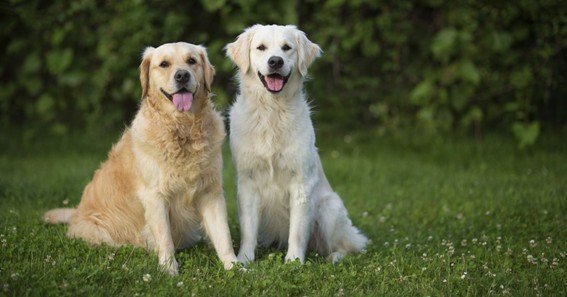Adopting a puppy is exciting. However, getting your new family member acquainted with your home, house rules, and behavioral expectations can be quite the process. Luckily, there are tried-and-true approaches to puppy training that can ease some of the stress.
Owning a puppy comes with a bunch of responsibilities. You’ll need to ensure that your furry friend learns the basics, which means you’re in charge of teaching potty training, basic commands, and so much more.
Indeed, raising a puppy is not very easy.
To help you and your new pal succeed, we’ve compiled a list of tips that may help you on your journey. Below, we discuss the key things you’ll want to know as you begin raising golden retrievers. Consider the following suggestions as you venture into puppy parenting.
Get your home ready before bringing golden retrievers home.
Before you bring your new puppy home, you’ll want to have puppy-proofed your home. You may need to install puppy gates in rooms you don’t want your puppy to enter. Covers for sharp corners on your staircases are additional puppy-proofing elements to incorporate beforehand. You’ll also want to set up areas for your puppy.
Other tasks to complete:
- Get their food and water stationed.
- Establish a playpen where your puppy will sleep.
- Have toys ready to go for their arrival.
Understand the proper training techniques to use.
Puppy training instructions are specific to the type of dog. As a retriever breed, golden retrievers are exceptionally responsive to visual cues. Be sure to associate words with motioning gestures to help your pup learn. Positive reinforcements are additional tools to use as you train your new puppy.
Start socializing early to teach them healthy social behavior.
There is some merit to the saying, “You can’t teach an old dog new tricks.” The earlier you expose golden retrievers to other dogs and people, the faster they will learn how to behave in social environments. Take them to dog parks or plan puppy playdates to help your dog become familiar with socializing.
Keep your puppy on a routine.
Pets thrive on routine. Your puppy will quickly learn to sense a routine when you repeatedly engage with them in structured ways. Start with a morning and night routine, and when possible, incorporate a midday routine.
Plan daily walks at a set time while showing them their leash as a cue. Keep to a consistent feeding schedule and give golden retrievers a bedtime cue, such as getting a treat before bed. Routines help puppies learn faster and they also build emotional security which support their wellbeing and growth.
Find the training approaches that work for your pup.
Puppy training is a challenging process. The more research you do about the breed of golden retrievers, the more you can fine-tune the training approaches that will work best for you and your dog. Remember to find the training approaches that work for your pup and include the above tips as you embark on your journey as a puppy parent.










